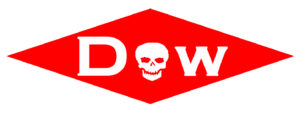Dow Chemical brings discredit to World Forum On Nature Capital
The World Forum On Nature Capital purports to offer: ‘a unique opportunity to hear the latest developments, learn from real-life case studies and connect with leading players to help shape the emerging dialogue.’
Amongst the many speakers is one Mary Draves, the ‘Global Director of Environmental Remediation and Restoration’ at the DOW Chemical Company.
It would be interesting to hear Ms.Draves take on the environmental remediation and restoration of the Bhopal disaster site since the issue is more than a little pressing.
Dow Chemical’s wholly owned subsidiary, Union Carbide Corporation never bothered cleaning up any of the thousands of tonnes of toxic waste abandoned in Bhopal at the now derelict pesticide factory.
That waste has contaminated the area, and the water supply, for miles around and thousands of families have have been using this toxic water as their primary supply for decades.
Perhaps Ms.Draves might consider putting proposing a remediation plan to the forum.
greenwashing corporation Reported by Rob Edwards, Herald Scotland, 22nd November
A major international conference in Edinburgh this week aimed at conserving wildlife is facing protests for helping big companies “profit from greenwash”.
The World Forum on Natural Capital to discuss how businesses can value and protect nature has run into fierce criticism from campaign groups in Scotland and India for hosting companies with controversial environmental records.
Among those due to give a presentation is Mary Draves, a global director of US chemical giant Dow. Critics hold the company responsible for the fall-out from the 1984 Bhopal disaster in India, which caused 25,000 deaths.
Carina Mueller, a scientist from UK-Dutch consumer goods firm Unilever, is also scheduled to address the conference. The company has been attacked for failing to properly clean up mercury contamination and compensate workers at a thermometer factory in Kodaikanal, south India.
The World Forum on Natural Capital is organised by the Scottish Wildlife Trust and backed by other major green groups. Due to take place on November 23-24 in the Edinburgh International Conference Centre, it is expected to attract 500 delegates from more than 35 countries. Other speakers include First Minister Nicola Sturgeon; the Scottish Government’s chief economist, Gary Gillespie; Virgin’s Sir Richard Branson; and David Nussbaum, chief executive of WWF UK.
The aim, according to the conference blurb, is to explore how risks to the world’s £47 trillion worth of natural capital can be “turned into opportunity”. Natural capital is the world’s stocks of natural assets such as geology, soil, air, water and all living things.
A coalition of 14 groups issued a joint statement calling the conference as “a con”. They are calling on organisers to demand companies “come clean on criminal negligence, social injustice and environmental destruction before lecturing on how to make ecosystem protection compatible with corporate profiteering”.
Eurig Scandrett, from Scottish Friends of Bhopal, argued corporations would always put their shareholders first, saying: “Putting a price on nature won’t change that. They will still dump where there’s least cost, which means on the poorest. We should be forcing these companies to be accountable, not helping them profit from greenwash.”
He criticised Dow, which took over the company that ran the Bhopal plant, for trying to evade liability for the disaster. “We will be protesting outside the conference centre and targeting the companies which have been invited to speak,” he said.
The joint statement was backed by Global Justice Now, Friends of the Earth Scotland and the Scottish Hazards Campaign. It was also signed by campaign groups in India. The leading Bhopal campaigner, Satinath Sarangi, said: “I am sure the people of Edinburgh are not happy being known as the hosts to this festival of smoke and mirrors … We Bhopalis hope they make their displeasure known.”
Another Indian campaigner, Nityanand Jayaraman, said: “If Unilever prides itself in being the gold standard of corporate responsibility, why is it penny-pinching when it comes to compensating mercury-affected workers or cleaning up the mercury contamination in Kodaikanal?”
Jonathan Hughes, chief executive of the Scottish Wildlife Trust, welcomed the protest, saying: “It is important those who care about the future of the natural world make their voices heard in a variety of ways. On the one hand this might mean banners and placards on the streets. On the other it might mean environmental organisations trying to work constructively with businesses and governments to help improve their environmental sustainability.”
He added: “We founded the World Forum because we wanted to help make businesses and governments an ever-increasing part of the solution to the huge environmental challenges we face in the 21st century.”
A spokeswoman for Dow said the company had “no statement to share at this time”. In the past Dow has argued that compensation has already been paid to Bhopal victims, and that it has no remaining liability.
Unilever said it had been striving to resolve issues at Kodaikanal after an incident 14 years ago closed its factory. “There is no authoritative medical data from any report showing our operations caused illness,” said a company spokesman. Independent expert studies showed there was no adverse impact on the environment in Kodaikanal, except in some areas of the factory premises. We are keen to continue work on clearing up the factory site.”



